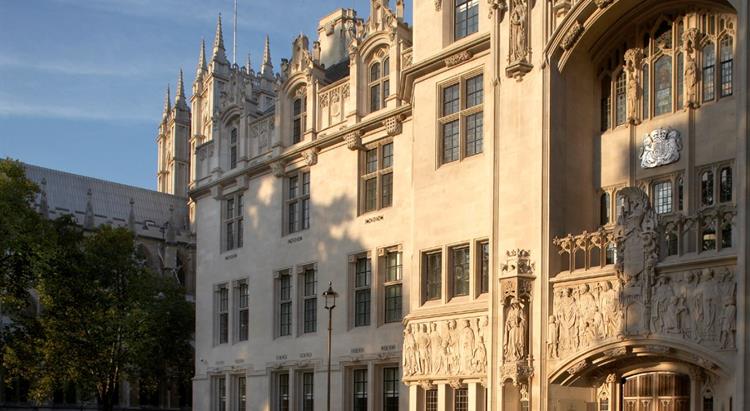24 October 2019

Supreme Court, London
The written judgment in the landmark Supreme Court case decision of Routier and another v Commissioners for Her Majesty’s Revenue and Customs [2019] UKSC 43, which was heard 2-3 April 2019, has now been published.
In its judgment the Supreme Court accepted the arguments put forward by the Attorney General for Jersey that the European Union right of free movement of capital applies to movements between the UK and the Island, as well as between the Island and the rest of the EU.
Free movement of capital is the only EU freedom which expressly benefits third countries as well as member states. HMRC argued that Jersey is not a third country and that the Island’s constitutional position with the UK meant that the relationship was purely an “internal” one.
Where there was any doubt on this point, they submitted, the case should be referred to the European Court of Justice. The Attorney General for Jersey intervened as an interested third party in order to protect the Island’s status and freedoms, and ensure that they remain properly understood, especially at the present time with the UK’s imminent departure from the EU.
Third country
The main focus of the case concerned how the term "third country" should to be properly understood and applied. The Supreme Court accepted the submissions of the Attorney General as to Jersey’s constitutional status, the scope of application of EU law to the Island, the relevance of current practices of the European Commission and how jurisprudence of the European Court of Justice makes it clear that Jersey is a third country for capital movements.
This final decision contains the most thorough examination of Jersey’s legal status and constitutional position in recent times and provides in-depth analysis on how certain key EU principles should be approached and applied.
The outcome means that Jersey cannot be denied the protections with respect to capital movements guaranteed to third countries by the EU, for instance, in the form of any restrictions affecting capital movements to and from the Island. This is of particular importance to Jersey’s on-going success as an international finance centre.
Judgment
The judgment concluded that: "In the present case it is clear that, as the EU rules on free movement of capital do not apply in Jersey, Jersey is to be considered a third country for the purposes of a transfer of capital from the United Kingdom. Capital has moved from a member state where Article 56 applies to a territory where it does not and that cannot be considered a purely internal situation.”
Jersey’s Attorney General, Robert MacRae QC, said: “I welcome this highly significant judgment which supports our decision to intervene to secure Jersey’s constitutional and international interests in the face of flawed arguments as to Jersey’s proper status.”
Background information
Paragraphs 8 and 9 of the judgment state:
“The Channel Islands are not part of the United Kingdom and have never been British colonies or dependent territories. They are Crown Dependencies which enjoy a unique relationship with the United Kingdom and the Commonwealth through the Crown in the person of the Sovereign.”
“The relationship between the Channel Islands and the Crown has continued to observe the distinct laws and ancient customs of the Channel Islands which are rooted in Norman customary law. Successive sovereigns have confirmed by Royal Charter privileges and liberties to Jersey including an independent judicature. Jersey also has its own legislature.”
A press summary and the judgment together with the live-stream of the hearing on 2/3 April 2019 and the handing down of judgment on 16 October 2019 is available from the Supreme Court’s website
The justices of the Supreme Court were Lady Hale, Lord Reed, Lord Carnwath, Lord Hodge and Lord Lloyd-Jones.
The judgment of the Court of Appeal in England and Wales is available online